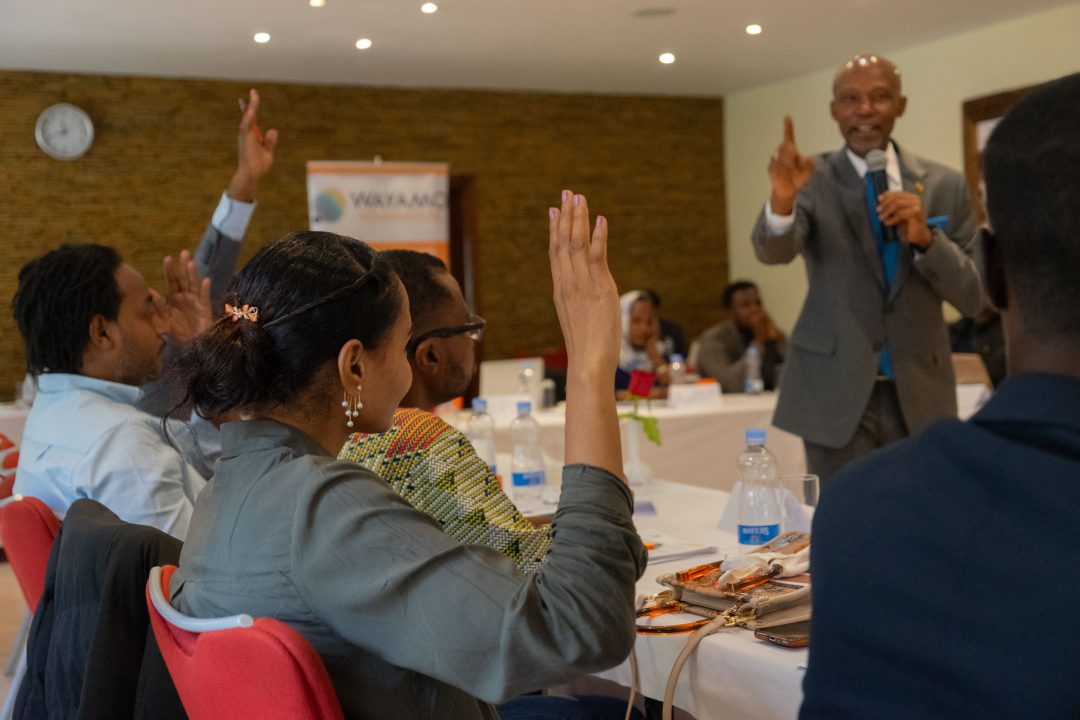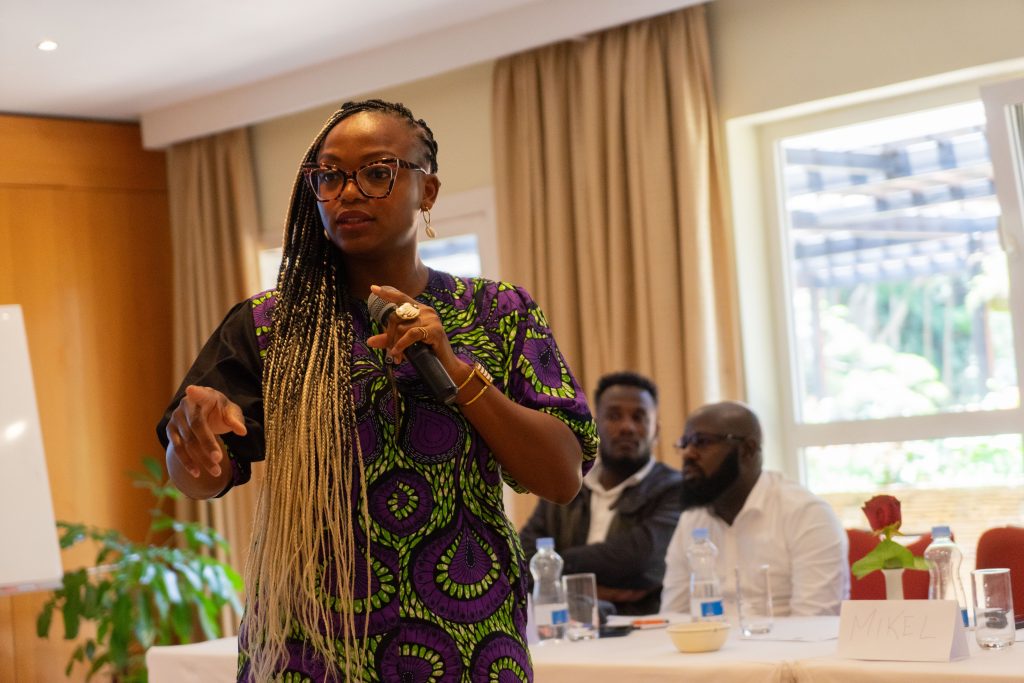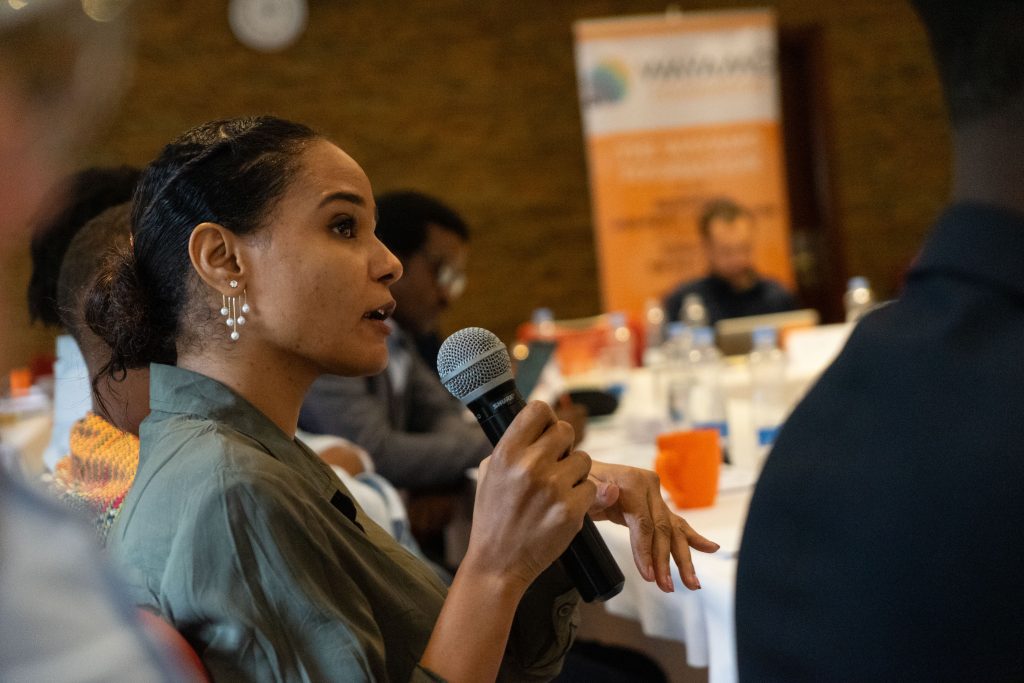With the financial support of the German Federal Foreign Office and the Ministry of Foreign Affairs of the Netherlands.
Click here for all the workshop pictures.
From 11-13 September 2023, the Wayamo Foundation convened a three-day workshop for journalists in Nairobi titled “Responsible Media for Justice and Accountability in Sudan” aimed at enhancing media reporting on justice-related matters within the context of Sudan.
This workshop, conducted as part of Wayamo’s ongoing “Capacity building for civil society and the justice sector in Sudan” project, bolsters the reporting capabilities of Sudanese journalists, enabling them to comprehensively cover critical justice-related issues.
The program comprised a variety of sessions, leveraging the expertise of Wayamo Foundation personnel and external experts. Attendees engaged in peer-to-peer training, practical break-out sessions, and discussions, all held under the umbrella of Chatham House rules to promote candid and free-flowing dialogue.
The workshop commenced on Monday, September 11th, with a session on contextual analysis led by Abdalbasit Mohamed, a Legal and Research Officer from Wayamo, along with other subject matter analysts. This set the stage by providing attendees with a comprehensive understanding of the current situation in Sudan. Following this, a group discussion focused on the role of media during times of armed conflict and in post-conflict settings, emphasising the responsibilities of journalists in these challenging contexts.
Day one also featured sessions on substantive and procedural challenges facing accountability for international crimes in Sudan, led by Mohamed Abdelsalam Babiker, an Associate Professor of Law at the University of Khartoum. Additionally, Mark Kersten, a Senior Consultant at Wayamo Foundation, discussed the promise of universal jurisdiction for international crimes committed in Sudan.
Day two began with Nkem Agunwa, Program Manager at Witness, who led a session on harnessing the power of visual evidence, demonstrating how video can support and enhance storytelling, advocacy, and journalism. The day also covered reporting on conflict-related sexual violence crimes, with Adejoké Babington-Ashaye delving into best practice of covering these sensitive issues, emphasising the importance of preparation, respect, and sensitivity in interviews.
Day three commenced with a recap and an exploration of the Darfur cases at the International Criminal Court (ICC) by Mikel Delagrange, an International Criminal Justice and Victims’ Expert at Wayamo Foundation. Kris Kotarski, Digital Programs Manager at Wayamo, then discussed open-source investigation methods in journalism, showcasing best practices.
Abass Eltegani, a Peace and Media Researcher, led a discussion on identifying hate speech in the current Sudanese context, a critical topic given its role in exacerbating conflict and tensions. The workshop culminated in group discussions focused on identifying key issues, critical stories, storyboarding, story construction, pitching exercises, and reviews.
The Wayamo Foundation’s workshop on responsible media for justice and accountability in Sudan not only fostered a deeper understanding of critical justice-related issues but also equipped Sudanese journalists with essential reporting skills.
“You might think that you know all as a journalist but still there are gaps realised in every workshop,” said one of the participants after the workshop.
” I will apply much of what was mentioned in the workshop, especially the use of open sources, and alert the world to the extent of the crimes committed in Sudan,” added another.
The workshop was held in the context of Wayamo’s ongoing project “Capacity building for civil society and the justice sector in Sudan” project, which is set in the wider context of providing training in international criminal law, international humanitarian law and human rights to civil society and legal actors both in Sudan and the East African region, aimed at building a coalition committed to addressing impunity through regional and domestic accountability measures, such as national court systems.






